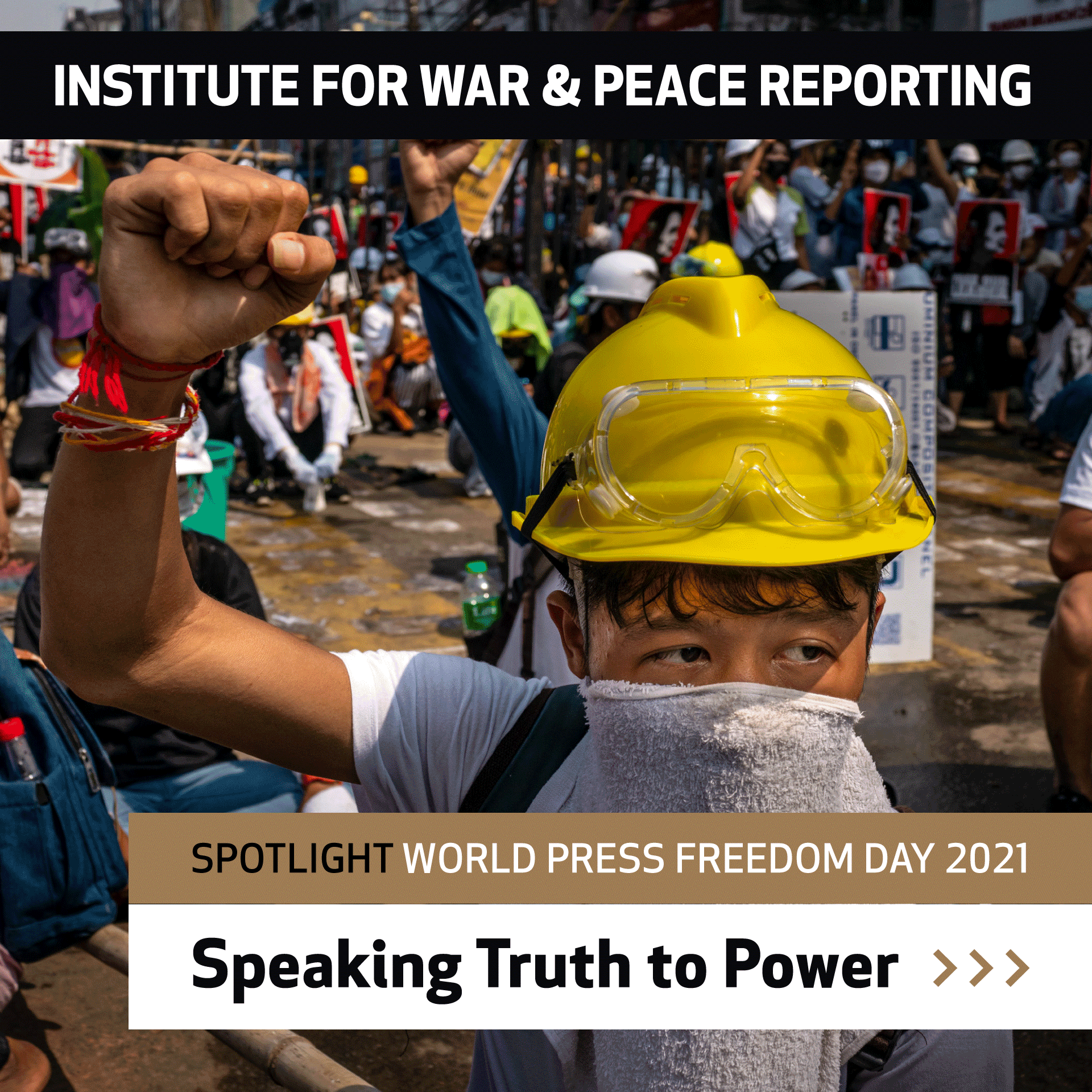Myanmar: ‘The Coup Has Robbed Us of Our Rights’
Anyone associated with the protests risks arrest, and no one knows where they are taken.
I am a freelance journalist and analyst in Yangon, and I live at home with my mother and father.
Yangon is my hometown but now the atmosphere here is like a ghost city. On the streets we face a lot of danger from the military. We can go out during the day, taking care, but nobody wants to go out in the evening.
We have a lot of stress because every day we hear news about many people dying. The military and the police have cracked down brutally on anyone against the coup, and everyone is angry about the situation. We feel the coup has robbed us of our rights.
"If you’re arrested, nobody knows where you will be taken."
There is a curfew from 8pm to 4am, so during the night-time we bang pots and pans to show our opposition to the coup.
During the day, the military goes around the streets checking on people. Often they go to people’s houses and arrest them.
If you’re arrested, nobody knows where you will be taken. You cannot gather clear information from the police. Sometimes people are taken to military camps for investigation and torture, or they are sent to a prison. Nobody knows – you can be lost this way so that no one can find you.
A lot of my friends have been arrested by the security forces. I tried all I could over many days but I could not find them. I have to contact a lawyer, and maybe after a week we find that they are in prison. A lot of my friends are in prison. But a number of people have already died in prison during investigations due to beatings by the security forces.
Anyone associated with the protests can be arrested: journalists and writers, but also poets and artists and anyone else. Anyone can be detained.
Some people who have gone to the police station to try to find their friends are themselves arrested. This has happened a number of times.
At the beginning of the coup, we could protest on the roads. After the military cracked down on the protesters, people moved to local neighbourhoods and built up blockades out of different kinds of materials as a protection so they could continue demonstrating. It was like a frontline.
But the security services brutally cracked down on this. They used bullets on the people and grenades and heavy weapons to knock down the barricades. After that, they would use tear gas.
So now, all the roads are clear. The military and the police have removed all the blockades, and those kinds of demonstrations cannot continue anymore. People cannot protest on the roads like before, so sometimes people come out, will shout as a kind of protest for a while, and then they run away.
Shwedagon Pagoda, the most sacred Buddhist temple pagoda in the area, is open during the day but most people don’t go because they are afraid of the police.
At the beginning of the coup, the Buddhist priests said there should be negotiations between the political and military leaders, and roundtable discussions to resolve the crisis. But the military did not accept this. Now some of the priests are cooperating with the military and some are protesting.
A lot of the independent media have been closed down, and the military is trying to make sure that people cannot access information. The internet is shut down for many hours every day. People share information mostly on Facebook and other social media. Those who are clever with information technology can sometimes access VPNs [virtual private networks]. A lot of people share information directly via SMS, and I have sent up a friends group so we share information that way.
The independent Mizzima TV station is unable to broadcast, but they can use Facebook and their own app. People have used satellites to receive broadcasts from Thailand, Australia and elsewhere. But now the military has required everyone to hand their satellites over to a government administrative office. They have gone around to business and houses with satellites and told them to take them down.
If you have a smartphone – an iPhone or a Samsung – the police may stop you and investigate it. They may want to see if you are a protester and are using it to share information on demonstrations. Or they may just take it from you. They may ask you for money. Or they may use it as an excuse to kidnap you, and they say they will take you to prison if your family does not bring them money.
Paul is a Burmese analyst and journalist in Yangon. His name has been withheld.

